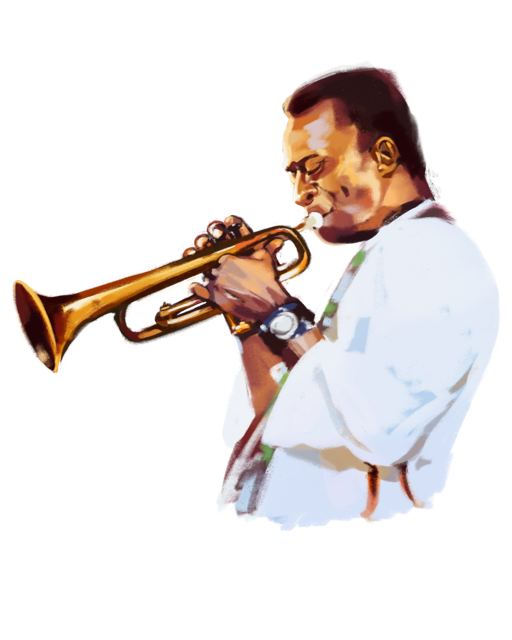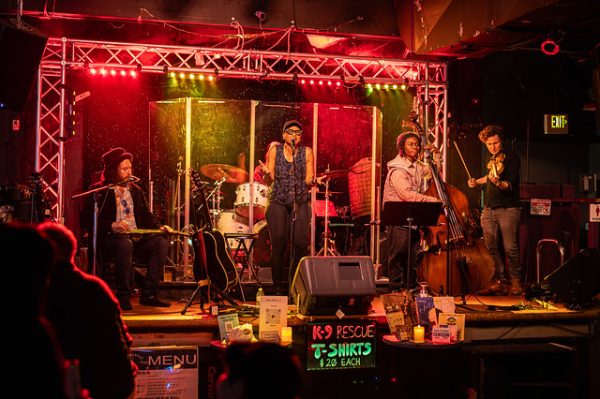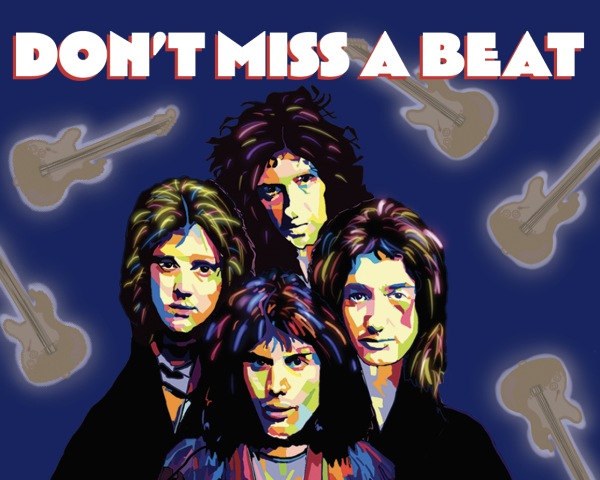Black Music: Amplifying America
The impact of Black American musicians and their music on the music industry
The African American influence on American music is profound; it has shaped American music in every genre,” Retired Paly teacher Letitia Burton said. “Even bluegrass and country western music has been shaped by the African influence.”
Burton retired from Paly in 2020 but still considers herself an educator. She uses her background as an educator, personal experience as a musician, and knowledge of American history to help unpack the influence of Black musicians and music.
Many Black musicians throughout history have been underrepresented, despite their tremendous impact on the music industry. The emergence of African American culture in the United States as a result of slavery and mistreatment has heavily shaped the creation of modern music.
The term “Black Music” is used to describe the many genres that have been heavily impacted by African American musicians. From R&B, jazz, soul, blues, jazz-rock fusion, hip-hop and folk music, Black musicians have played a prominent role in the creation and evolution of modern-day music.
“[Black music] has been really influential and it has had a big impact on the music that we hear now,” senior Maia Johnsson said. “I think that without Black music from a while ago, we wouldn’t be anywhere [near] where we are right now.”
Black artists throughout American history have shaped the music industry with revolutionary and unique genres.
“African American [musicians] have made so many impacts on history, and I definitely believe our influence on music will never be forgotten,” junior O’Maria Sephers said.
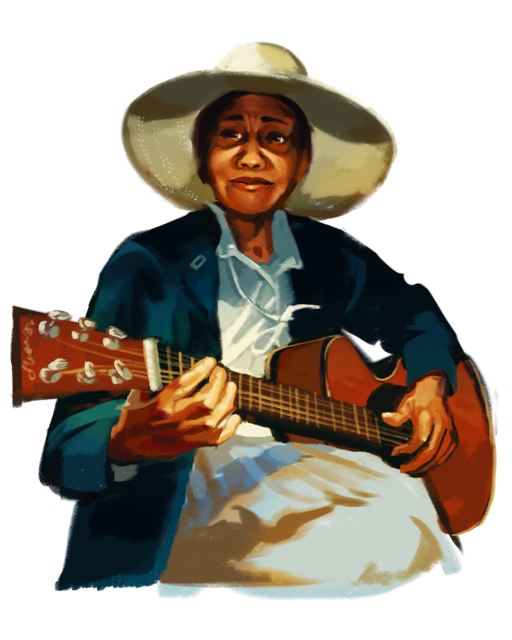
After slavery came the creation of blues, a genre of music inspired by traditional African American folk music. Early blues artist Lead Belly was famous for his innovation in folk-blues.
“He introduced playing a 12 string guitar into mainstream [music], which was kind of uncommon, at least in Black music up until this point,” junior Reed Schulman said.
Other blues artists such as Elizabeth Cotten and Mississippi John Hurt were famous for their contribution to the genre as well as their talent as solo musicians.
“They’re both really talented because they are able to play a guitar where they both have a melody and an accompaniment going at the same time,” junior Phela Durosinmi said.
This method and technique of playing the guitar guided many musicians. Cotten is known for creating a new style of playing the guitar for left-handed musicians by flipping a right-handed guitar to play it properly with her left hand.
“She played it left-handed, which was just unseen at the time, and now lots of people do that,” Schulman said. “It’s kind of a moment in history where something completely original is now a form of a standard way of playing.”
Jazz, another classic American genre created in the late 19th century, boasts a rich history and influence from Black musicians.
“A lot of [jazz] came from the South and New Orleans,” Durosinmi said. “And it was almost all African American.”
Jazz was created as a blend of blues and ragtime, an example of merging of African and European music which included syncopated rhythms.
“I like that jazz can take many forms,” Durosinmi said. “It’s very fluid and finds its way into many forms of music.”
Some notable Black jazz figures include: Scott Joplin, who brought attention to ragtime, Grant Green, known for blending styles, Louis Armstrong, who moved the focus of music to solo performances and Don Shirley, who mixed jazz with a classical influence. These are just a few of many who shaped the music industry.
“Grant Green plays a lot of covers and has refined a very clean and distinct tone,” Durosinmi said. “He is able to put new spins on other people’s music while leaving his mark on them.”
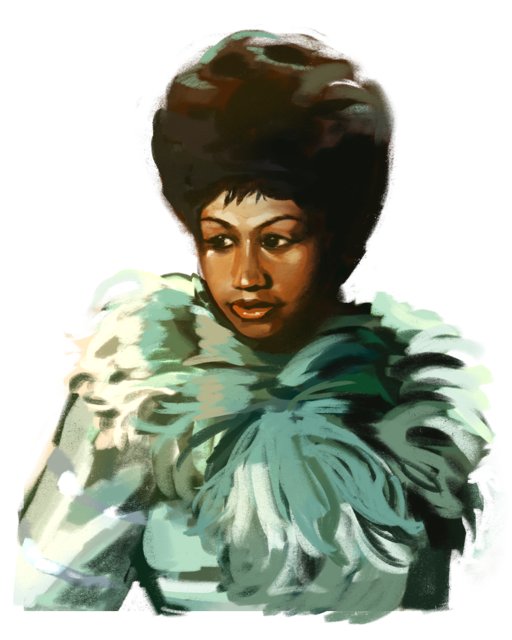
Another notable jazz figure is Ella Fitzgerald, who is sometimes called “The First Lady of Song”.
“When I listen to Ella Fitzgerald she has such a pure sound and she has an incredible range,” Burton said. “She can [sound] light as a feather but she can also be really deep and soulful.”
The pillars of Black music have spread to many other genres. Rock and roll was created by Black musicians such as Chuck Berry, another example of the clash between European instrumentals and the African American R&B, short for rhythm and blues music tradition which managed to create an innovative new genre which spread wide and was adored by fans black and white.
Rock and Roll Musicians include Little Richard, who was famous for his glorious performances and piano skills, and Jimi Hendrix who was one of the most impactful guitar players of all time.
“[Hendrix] led the way into exploring the endless possibilities of the guitar,” Schulman said. “He formed a new sound that’s replicated today but probably will never be made again successfully.”
Starting in the 1940s, new genres such as R&B emerged. Artists Stevie Wonder, Aretha Franklin and Ray Charles led the rise of this new genre that is still very popular today.
By the end of the 20th century, rap music started to become popular, with well-known hits such as 50 Cent “In Da Club” and Nelly’s “Hot in Herre” coming out in the early 2000s.
“I went to college in the late ‘90s and early 2000’s,” Paly band teacher Gregory Miller said. “The influences of individuals like Dr. Dre, Snoop Dogg, Ice T and Ice Cube from the late ‘80s and ‘90s paved the way for artists like Nelly and Jay Z.”
Rap music has continued to change throughout the years as new musicians bring new ideas.
“I think it’s really fun to see how [rap has] evolved through the words they use, the tone, and the speed at which they are rapping,” Johnsson said.
Living as a Black musician in America post-reconstruction offered its struggles. Lead Belly, an inmate in the deep south, often sang about the issues which plagued his day.
“He talked about racism and prison and also politics,” Schulman said.
Black music is often shaped by the experience of Black Americans, whose lives and experiences are reflected through song.
“I feel like every song, whatever genre, you know, gospel, R&B, Blues, Jazz, all of it is really a story,” Sephers said.
Black musicians have used their voices to bring important issues to light. For those who have managed to gain credit and success for their artistic endeavors, their lyrics reach a large audience and can have meaningful impacts.
“A lot of black music really tries to embrace culture and bring out what they [the artists] are thinking of and who they are,” Johnsson said. “And I think that’s really fun to listen to because I get to feel like I’m seeing a bit into this musician’s life and seeing what they are interested in,”
An example of a song that sheds light on prevalent issues is ‘Alright’ by Kendrick Lamar which references promises given to enslaved people that were never received, as well as talking about police targeting the Black community.
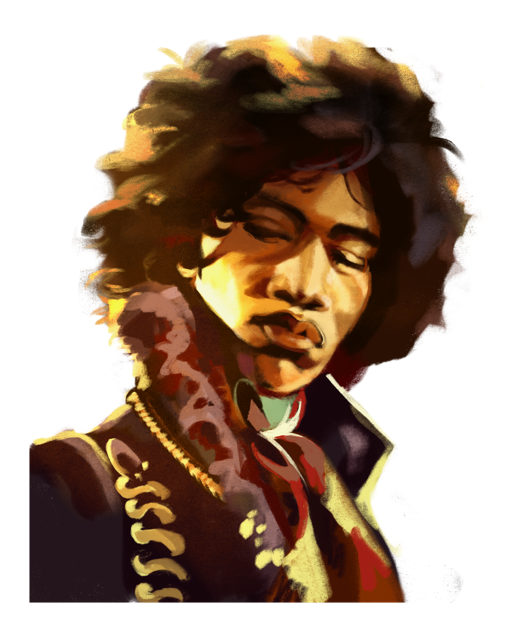
For many black musicians in history, music has been a medium through which they could gain independence and success, despite the racism of their times as well as allowing them the ability to express their culture and struggles.
“I think music is actually one of the mediums where [Black musicians are] the most accurate and most equally represented,” Durosinmi said.
However, there is still work to be done to increase representation for Black musicians in some genres, such as classical music, where credit for Black musicians is severely lacking.
“In the world of classical music, we still have a very long way to go, as is illustrated by the lack of diversity in published lists of recommended music published for band and orchestras out there available to teachers,” Miller said.
The largest distributor of music recommended for orchestras and bands in the United States, JWPepper, carries a very small number of compositions written by Black musicians.
“This list includes only 1.3% of historically underrepresented composers,” Miller said. “This is why I work so hard to find music sourced by composers from a wide variety of diverse backgrounds that are more representative of our community here in Palo Alto.”
Schulman agrees that not all Black musicians are given the amount of recognition and coverage that they deserve.
“There have been Black musicians who have had massive influence over the young population and across racial divides that haven’t received much credit, if any,” Schulman said.
An example of this is Chuck Berry, who was put in as a co-writer for something he wrote by himself, leading him to receive less credit for his own song.
Though not always given the proper credit, Black musicians have been immensely impactful to the music industry in the past and present day.
“I would just think that without the influence of African Americans and American music, [music] wouldn’t be what it is now,” Burton said.
Black music and musicians have impacted the entirety of the music industry. Most, if not all, musical genres owe credit to Black musicians.
“We’ll always see undertones and the influence of historical Black music like blues, soul, funk, gospel, jazz,” Schulman said. “And it’s [historical Black music that] paved the way for the modernization of Black music which has become, thankfully, more and more mainstream.”
Art by Renny Argast
Print Issue
Please click on the three vertical dots on the top right-hand corner, then select “Two page view.”

2021-2022 - Staff Writer
2022-2023 - Managing Editor
I joined C Mag because it seems like an amazing opportunity to be able to be creative and write...

2021-2022 - Staff Writer
2022-2023 - Managing Editor
Pronouns: he/him


